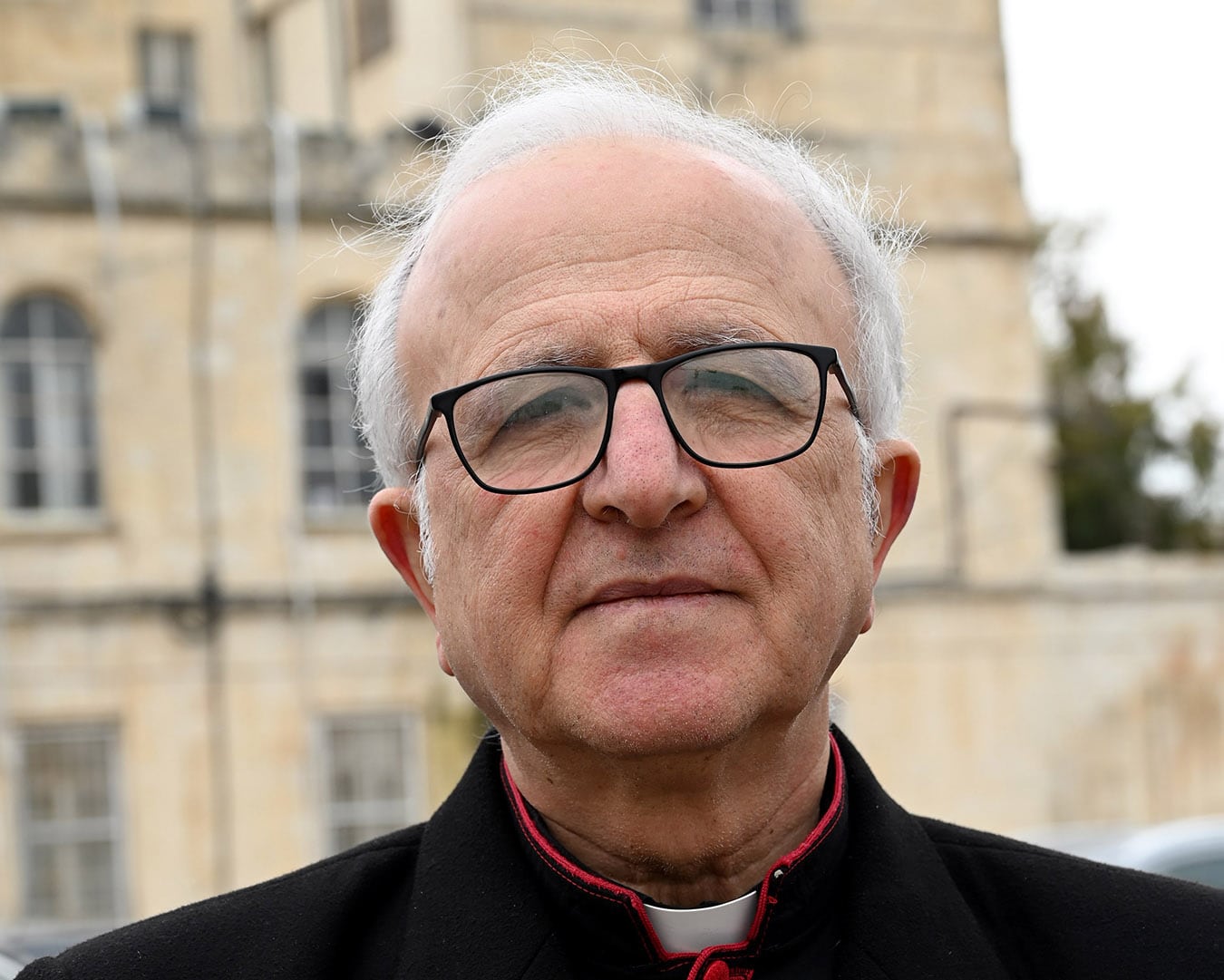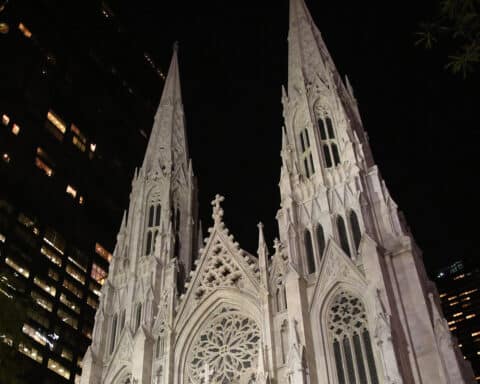(OSV News) — A Palestinian bishop has warned that even when the current war in the Holy Land ends, a cycle of hate will continue unless the underlying dispute is resolved by a comprehensive peace process.
Auxiliary Bishop William Shomali of the Latin Patriarchate of Jerusalem told OSV News that the level of destruction in Gaza is unprecedented and many residents there are “starving.”
“The situation in Gaza is literally very bad — a destroyed city, destroyed houses and quarters, destroyed infrastructure,” he said.
“People in Gaza are hungry, rather starving. … The situation of the displaced is very difficult. Many of them are without any place to live in, they are in the street literally, those who are privileged have a tent,” said the bishop, who was born in Beit Sahour in the West Bank, the traditional site where the angels announced the birth of Jesus to the shepherds.
Bishop Shomali, 73, also pointed out that even though West Bank communities are approximately 62 miles from Gaza, they are not exempt from the consequences of the conflict with increased clashes with the Israeli Defense Forces and settlers.
“The violence between soldiers and settlers from one side and young Palestinians in the north of Palestine is underestimated and understated — the importance and priority go to Gaza, but the events in the north side of the West Bank are not enough mentioned in the newspapers,” he said. “Palestinians in the West Bank have lost more than 300 persons so far.”
Tourism economy hit
“There is a lot of poverty and despair in the West Bank,” Bishop Shomali continued. “The two major sources for earning money come from tourism and from workers who work in Israel. The 160,000 workers in Israel stopped working, and they are depriving the West Bank from millions of shekels (local currency) every month. Tourism also gives a good revenue to the people of Bethlehem, Jerusalem, and Nazareth.
“In the absence of tourism, those who work in the touristic industry are deprived from having a salary, especially in Bethlehem. And they suffer a lot after more than 110 days of unemployment. These people really now are in big need.”
The prelate also warned about the long-term effects of the war, both for Israelis and Palestinians.
“We know the vicious circle between violence and hatred. Violence begets hatred and more hatred begets more violence.,” he said. “This is the situation now between Palestinians and Israelis from one side, and a kind of gap also has opened between Arab Israelis and Israeli Jews. We hope that these sentiments will decrease in the future, but when? We don’t know.
“The amount of violence which took place either on October 7 or afterwards created a big, big gap (between the communities.) We need at least one generation to forget, especially inside Israel itself, where Jews and Arabs used to collaborate and to work together.”
Bishop Shomali insisted that peaceful coexistence will only come about when underlying issues are addressed.
Remote causes of war
“Palestinians will forget what happened if after the war a process of peace, justice and reconciliation takes place. Because this war has remote causes,” he told OSV News. “The cause of the war didn’t start only on October 7, although October 7 was witness to terrible and atrocious events. But the violence itself is caused by remote causes, which is the delay in finding a solution to the Israeli-Palestinian conflict and not recognizing that the occupation of the land of others cannot continue for so long.”
The current conflict was sparked by Oct. 7 terrorist attacks by Palestinian militant group Hamas on Israel, which saw more than 1,200 people killed and some 240 people taken hostage. Approximately 100 hostages have since been released in a deal brokered by Qatar, but approximately 130 remain in captivity in Gaza.
Health officials in Gaza say at least 26,751 people in Gaza, most of them women and children, have been killed in the territory since Israel’s offensive began and more than 60,000 have been injured.
Pope Francis has repeatedly appealed for a cease-fire and met with Palestinians as well as families of those held hostage in Gaza.





